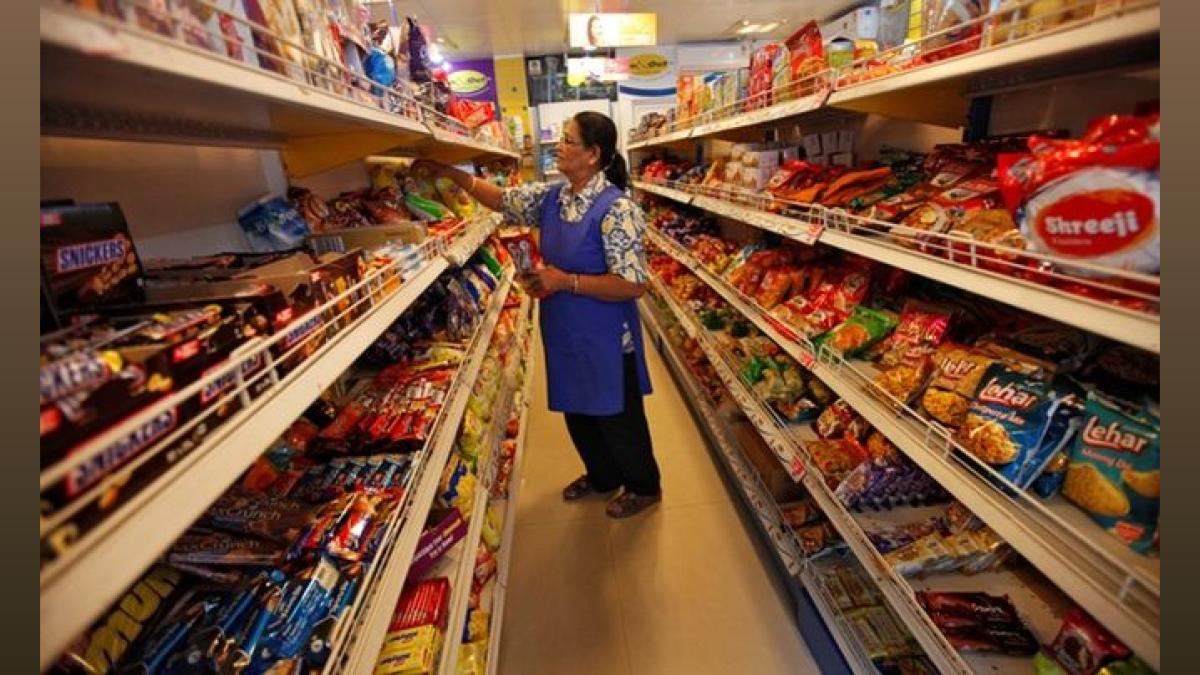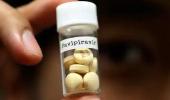India Calls for Harmonized Probiotic Guidelines
India advocates for harmonized guidelines for probiotic foods and supplements at the Codex Committee on Nutrition and Foods for Special Dietary Uses (CCNFSDU), highlighting the need for updated regulations.

New Delhi, Oct 7 (PTI) India has advocated for harmonised guidelines for probiotic foods and food supplements in view of scientific advancements.
India participated in the 44th session of the Codex Committee on Nutrition and Foods for Special Dietary Uses (CCNFSDU) held in Dresden, Germany from October 2 to October 6, 2024, according to an official statement.
During the conference, India provided valuable insights on nutrient reference values for persons aged 6-36 months. It also extended support to frame harmonised guidelines for probiotic foods and food supplements.
Countries like Canada, Chile, New Zealand and several others backed India's views.
Playing a pivotal part in creating harmonised guidelines for probiotics, India highlighted that the current Food and Agriculture Organization (FAO)/ World Health Organization (WHO) documents on "probiotics are two decades old and need revision in light of scientific advancements".
Additionally, India emphasised the lack of international harmonisation in probiotic regulation guidelines, which may impede global trade practices.
The committee agreed to revisit these guidelines.
It requested FAO and WHO to conduct a review of the documents 'Health & Nutrition Properties of Probiotics in Food, including powder milk with Live Lactic Acid Bacteria' (2001) and 'Guidelines for the Evaluation of Probiotics in Food' (2002).
The review should be done by incorporating a literature review of scientific evidence on probiotics and come up with a new work proposal for reconsideration of CCNFSDU.
In the general principles for establishing nutrient reference values, India opined that the combined NRV-R value for persons from 6-36 months should be determined by calculating the mean value of the two age groups 6-12 months and 12-36 months, the same was considered and agreed by the committee.
"In the discussion on assessing the relative sweetness of carbohydrate sources in the Standard for Follow-up Formula, India disagreed with the EU's proposal for sensory testing, citing a lack of scientific validation for use in national legislation," the statement said.
Supported by the US, Canada and others, India's stance contributed to the committee's decision to discontinue the topic for now.
It was noted that in the absence of a harmonised method, ISO 5495 or other available methods could still be used.
Delegates from the Food Safety and Standards Authority of India, the Ministry of Health and Family Welfare, and the Ministry of Women and Child Development advocated for India's stance on various food safety, consumer health and trade-related issues.
During the adoption of the final report, India's suggestions were officially incorporated, marking a significant contribution to shaping global food safety and nutrition standards.
During the session, FAO/WHO announced plans for a joint statement on Healthy Diet Principles and shared updates on reviewing the benefits and risks of Alternative Animal Source Foods (A-ASFs).
FAO also introduced the new "Food and Diet" domain on its FAOSTAT database, the statement said.
India participated in the 44th session of the Codex Committee on Nutrition and Foods for Special Dietary Uses (CCNFSDU) held in Dresden, Germany from October 2 to October 6, 2024, according to an official statement.
During the conference, India provided valuable insights on nutrient reference values for persons aged 6-36 months. It also extended support to frame harmonised guidelines for probiotic foods and food supplements.
Countries like Canada, Chile, New Zealand and several others backed India's views.
Playing a pivotal part in creating harmonised guidelines for probiotics, India highlighted that the current Food and Agriculture Organization (FAO)/ World Health Organization (WHO) documents on "probiotics are two decades old and need revision in light of scientific advancements".
Additionally, India emphasised the lack of international harmonisation in probiotic regulation guidelines, which may impede global trade practices.
The committee agreed to revisit these guidelines.
It requested FAO and WHO to conduct a review of the documents 'Health & Nutrition Properties of Probiotics in Food, including powder milk with Live Lactic Acid Bacteria' (2001) and 'Guidelines for the Evaluation of Probiotics in Food' (2002).
The review should be done by incorporating a literature review of scientific evidence on probiotics and come up with a new work proposal for reconsideration of CCNFSDU.
In the general principles for establishing nutrient reference values, India opined that the combined NRV-R value for persons from 6-36 months should be determined by calculating the mean value of the two age groups 6-12 months and 12-36 months, the same was considered and agreed by the committee.
"In the discussion on assessing the relative sweetness of carbohydrate sources in the Standard for Follow-up Formula, India disagreed with the EU's proposal for sensory testing, citing a lack of scientific validation for use in national legislation," the statement said.
Supported by the US, Canada and others, India's stance contributed to the committee's decision to discontinue the topic for now.
It was noted that in the absence of a harmonised method, ISO 5495 or other available methods could still be used.
Delegates from the Food Safety and Standards Authority of India, the Ministry of Health and Family Welfare, and the Ministry of Women and Child Development advocated for India's stance on various food safety, consumer health and trade-related issues.
During the adoption of the final report, India's suggestions were officially incorporated, marking a significant contribution to shaping global food safety and nutrition standards.
During the session, FAO/WHO announced plans for a joint statement on Healthy Diet Principles and shared updates on reviewing the benefits and risks of Alternative Animal Source Foods (A-ASFs).
FAO also introduced the new "Food and Diet" domain on its FAOSTAT database, the statement said.
You May Like To Read
TODAY'S MOST TRADED COMPANIES
- Company Name
- Price
- Volume
- Vodafone-Idea-L
- 10.33 ( -4.35)
- 64797552
- Spicejet-Ltd
- 32.80 (+ 5.43)
- 56010971
- Alstone-Textiles
- 0.30 ( 0.00)
- 31396920
- Sunshine-Capital
- 0.25 ( 0.00)
- 23100719
- G-V-Films
- 0.63 ( -4.55)
- 21781317






